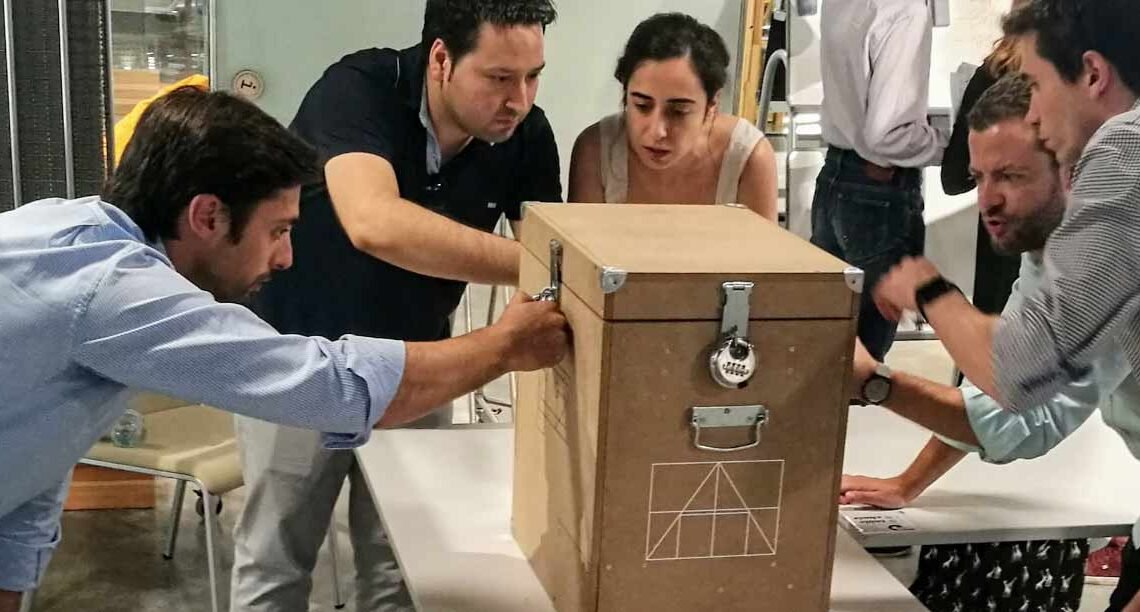In recent years, Escape Rooms have grown significantly in popularity due to their ability to improve innovative thinking, learning and activate emotional and social skills.
Escape Rooms are about creating an escape room in which a group of people must solve an enigma or problem through a set of clues within a limited time. It can encourage innovative thinking by encouraging participants to take creative risks to solve the puzzle. Many people apply the principles they acquired in the escape room games to tackle everyday problems after the encounter. Escape Rooms are a great activity for team development events, leadership groups, and other teams looking to improve their creative thinking.
How Escape Room Games Enable Innovative and Creative Thinking:
Here’s how your escape room experience may inspire you to be more creative and innovative in your own space.
There is a limited amount of time to escape
Escape Rooms are timed events where parties are given one hour to solve the puzzles. Dealing with this time constraint might help you think more creatively. Participants recognize that the answer will be equally intriguing with little time to tackle such a unique problem.
Because of the short amount of time available, participating groups may be more inclined to try a variety of options rather than waste time debating the pros and drawbacks of each. And participants may be more willing to offer out-of-the-box ideas.
An Exceptional Setting
Even if your team has previously finished an escape room, each one is special in terms of the puzzles it wants you to complete and the surroundings in which you are placed. The absence of familiarity will promote inventiveness because you’ve never experienced a comparable scenario before. There will almost certainly be no noticeable starting point, so team members will have to use all of their mental powers to comprehend their new environment and solve the problem.
The Need for Teamwork
Many of our day-to-day activities are done alone, from domestic duties to job initiatives. Escape Rooms need people to work together in groups to effectively escape the room. When making judgments, each teammate must now consider their team members’ ideas, strengths, and thought processes. Participants may learn that having a group of people to support them allows them to try more ambitious solutions involving several actions or phases that they would not have considered alone.
Examining Hints and Clues
Puzzles are a sequence of multiple trial and error attempts, with each failure encouraging participants to think of a more inventive solution than the previous one. People use the knowledge obtained from previous clues and tips offered by the gamemaster as they go through the puzzles. They keep making educated guesses until they find the right answer, employing ingenuity to try each possible solution, evaluating it, and picking the next best choice if it fails.
Tackling Riddles
Some escape rooms use cryptic language, perplexing directions, and puzzles that lead to the solution. Because the codes aren’t stated in simple English, participants must use their imagination to solve them.
They may consider using the escape room’s theme as a hint, or they could start a new trial and error technique of selecting and testing options.
Riddles, in particular, inspire individuals to think outside the box to figure out what the riddle is expressing or recommending as a course of action. To figure out what the riddle means, they’ll look at other word meanings, symbolism, and other methods. These code-breaking tasks might also help you improve your communication abilities.
The competition is friendly
Escape rooms are high-octane, competitive activities. Everyone’s innate drive to win will surface, but it’s only a game in the end. Understanding that there are no repercussions — other than snapping a goofy photo to exhibit your results later — may motivate people to start thinking more innovatively than if they were confronted with major penalties after obtaining their results. After all, what have they got to lose? Irrespective of the outcome, escape rooms are still a challenging and fun gaming experience.
In conclusion, Escape Rooms are exciting activities to include in people’s learning and development processes, regardless of age. They allow them to develop a series of creative thinking skills and competencies in a different and fun way. Visit the website to learn more.







